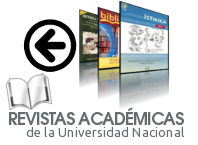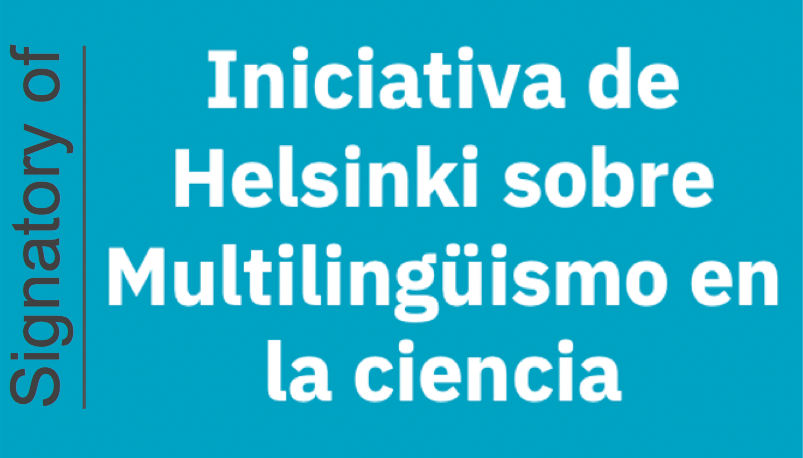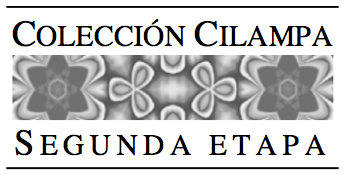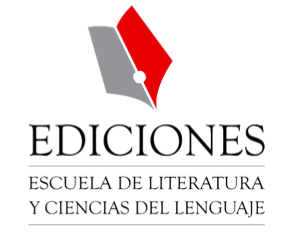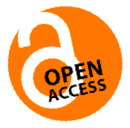El sentido de pertenencia, identidad y agencia de docentes del ILE en sedes regionales
DOI:
https://doi.org/10.15359/rl.2-73.6Palabras clave:
docentes ILE, sentido de pertenencia, agencia profesional, identidadResumen
El artículo presenta los resultados de un estudio de historia de vida de nueve docentes universitarios de inglés como lengua extranjera (ILE), de diferentes campus regionales. Se analizaron y organizaron los datos siguiendo la perspectiva tridimensional, temporal-relacional de la agencia docente, que ofrece la aproximación ecológica. Se concluye que los factores del pasado dieron a los profesores un amplio repertorio de respuestas para participar y actuar, principalmente sentido de pertenencia institucional y a la comunidad. Se destacaron en las historias de los participantes diferenciales de poder y la necesidad de asociación y reconocimiento.
Referencias
Arauz, Ileana, Ileana Schmidt and Alexandra Tabash. “Mirando el pasado: Soñando el futuro,” Universidad en Diálogo 2, 1 (2012): 15-30.
Atchoarena, David and Lavinia Gasperini. Education for Rural Development: Towards New Policy Responses. Rome: Food and Agriculture Organization of the United Nations, 2003. 27-34. <http://www.iiep.unesco.org/en/publication/education-rural-development-towards-new-policy-responses>.
Atencio, Roy and Kevin Brand. “Situación de la regionalización universitaria en Costa Rica,” Revista Congreso 5, 3 (2016): 21-32.
Barkhuizen, Gary. “Narrative Approaches to Exploring Language, Identity and Power in Language Teacher Education,” RELC Journal 47, 1 (2016): 25-42. DOI: https://doi.org/10.1177/0033688216631222.
Biesta, Gert and Michael Tedder. “Agency and Learning in the Life Course: Towards an Ecological Perspective,” Studies in the Education of Adults 39, 2 (2007): 132–149.
Bourdieu, Pierre. “The Forms of Capital,” Handbook of Theory and Research for the Sociology of Education. New York, NY: Greenwood Press, 1986. 241-258.
Bracken, Susan. “Defining Rural Community(ies): Future Considerations for Informal and Nonformal Adult Education in Rural Communities,” New Directions for Adult and Continuing Education 117 (2008): 83-92.
Brancato, Vera. “Professional Development in Higher Education,” New Directions for Adult and Continuing Education 98 (2003): 59-65.
Brookfield, Stephenn. The Skillful Teacher: On Technique, Trust, and Responsiveness in the Classroom. San Francisco, CA: John Wiley & Sons, 2015. 15-41.
Caamaño, Carmen. “Aportes de la Universidad de Costa Rica a la movilidad social,” Semanario Universidad. 16 Sept. 2019. https://semanariouniversidad.com/ideasdebates/aportes-la-universidad-costa-rica-la-movilidad-social/.
Castro, Silvia. “Costa Rica frente a la regionalización de la educación superior,” Revista InterSedes 10, 18 (2011): 174-204.
Cole, Ardra and Gary Knowles. Lives in Context: The Art of Life History Research. Walnut Creek, CA: Altamira Press, 2001.
Coulon, Alain. Ethnomethodology. Thousand Oaks, CA: Sage Publications, 1995.
Cuervo, Hernán. Understanding Social Justice in Rural Education. Melbourne: Palgrave Macmillan, 2016.
Ecclestone, Kathryn, Gert Biesta and Martin Hughes. “Transitions in the Lifecourse: The Role of Identity, Agency and Structure,” Transitions and Learning through the Lifecourse. Oxon, UK: Routledge, 2010. 1-15.
Eteläpelto, Anneli. “Perspectives, prospects and progress in work-related learning,” Emerging Perspectives of Workplace Learning. Rotterdam, Netherlands: Sense, 2008. 233-247.
Eteläpelto, Anneli, Katja Vähäsantanen, Päivi Hökkä and Susanna Paloniemi. “What is Agency? Conceptualizing Professional Agency at Work,” Educational Research Review 10 (2013): 45-65. http://dx.doi.org/10.1016/j.edurev.2013.05.001.
Freire, Paulo. Pedagogy of the Oppressed. New York, NY: The Continuum International, 1970.
Galbraith, Michael. Education in the Rural American Community: A Lifelong Process. Malabar, FL: Krieger, 1992.
Goodson, Ivor and Pat Sikes. “Techniques for Doing Life History,” The Routledge International Handbook on Narrative and Life History. London: Routledge, 2007. 72-88.
Groen, Janet and Colleen Kawalilak. Pathways of Adult Learning: Professional and Education arratives. Toronto, ON: Canadian Scholars’ Press, 2014.
Holm-Nielsen, Lauritz, Kristian Thorn, Jose Joaquín Brunner and Jorge Balán. “Regional and International Challenges to Higher Education in Latin America,” Higher Education in Latin America the International Dimensión. Washington DC: The World Bank, 2005.
Huberman, Michael, Marie-Madeleine Grounauer and Jürg Marti. The Lives of Teachers. New York, NY: Teachers College Press, 1993.
Huberman, Michael. The Profesional Life Cycles of Teachers. Switzerland: Teachers College Record, 1989. 31-57.
Jarvis, Peter. Towards a Comprehensive Theory of Human Learning. New York, NY: Routledge, 2006.
Jarvis, Peter. Democracy, Lifelong Learning and the Learning Society: Active Citizenship in a Late Modern Age. New York, NY: Routledge, 2008.
Jarvis, Peter. Globalisation, Lifelong Learning and the Learning Society: Sociological Perspectives. New York, NY: Routledge, 2007.
Knowles, Malcolm. The Modern Practice of Adult Education: From Pedagogy to Andragogy. New York, NY: Cambridge Books, 1980.
Kuh, George and Jennes Hall. “Using Cultural Perspectives in Student Affairs,” Cultural Perspectives in Student Affairs Work.” Lanham, MD: American College Personnel Association, 1993. 21-87.
Lamb, David. “Promoting the Case for Using a Research Journal to Document and Reflect on the Research Experience,” The Electronic Journal of Business Research Methods 11, 2 (2013): 84-91.
Lusthaus, Charles, M Marie-Hélène Adrien, Gary Anderson, Fred Carden and George Plinio. Organizational Assessment. A Framework for Improving Performance. Ottawa, ON: International Development Research Centre/Inter-American Development Bank, 2002.
Núñez, Benjamin. Hacia la universidad necesaria. Heredia: Editorial UNA, 1974.
Opertti, Reanato. Inclusión educativa: El camino del futuro. OIE-UNESCO, 20 setiembre 2019.
Padilla, Jose Roberto. La educación, instrumento clave de movilidad social y pilar fundamental del desarrollo humano y el IVA. El Mundo, 20 setiembre 2019, https://www.elmundo.cr/opinion/la-educacion-instrumento-clave-de-movilidad-social-y-pilar-fundamental-del-desarrollo-humano-y-el-iva/.
Pallas, Aaron. “Educational Transitions, Trajectories, and Pathways,” Handbook of the Life Course. New York, NY: Kluwer Academic/Plenum, 2003. 165-184.
Pennycook, Alastair. Critical Applied Linguistics: A Critical Introduction. Mahwah, N.J.: Erlbaum, 2001.
Pennycook, Alastair. Language as a Local Practice. New York, NY: Routledge, 2010.
Pochet, Carlos. La Universidad Nacional y la educación superior estatal en veinte años de historia: 1973-1993. Heredia, CR: EUNA, 1993.
Portnoi, Laura and Silvia Bagley. “A Critical Analysis of Global Competition in Higher Education: Synthesizing Themes,” New Directions for Higher Education, 168 (2014): 97-100. DOI: https://doi-org.ezproxy.lib.ucalgary.ca/10.1002/he.20116.
Priestly, Mark, Gert Biesta and Sarah Robinson. Teacher Agency: An Ecological Approach London: Bloomsbury, 2018.
Rodríguez, Francisco. “La práctica docente en el contexto de la regionalización: Las sedes de la Universidad de Costa Rica,” Revista Comunicación 15, 1 (2006): 79-83. DOI: https://doi.org/10.18845/rc.v15i1.1076.
Schafft, Kai. “Conclusion: Economics, Community, and Rural Education: Rethinking the Nature of Accountability in the Twenty-first Century,” Rural Education for the Twenty-first Century. Pittsburg, PA: The Pennsylvania State University Press, 2010. 275-289.
Schmidt-Fonseca, Ileana. “La Universidad Nacional de Costa Rica y las sedes regionales como mecanismo de inclusión social,” Revista Universidad en Diálogo 62 (2016): 193-203. https://doi.org/10.15359/udre.6-2.11.
Universidad Nacional. Misión y visión. <http://www.transparencia.una.ac.cr/index.php/categorias/institucional/mision-y-vision.
Universidad Nacional. UNA en cifras: Compromiso con los sectores menos favorecidos. http://www.transparencia.una.ac.cr/index.php/categorias/una-en-cifras/380-una-promueve-la-calidad-academica-4.
Valimaa, Jussi, Helena Aittola y Jani Ursin. “University Mergers in Finland: Mediating Global Competition,” New Directions for Higher Education 168 (2014): 41-53.
Voronov, Maxim and Klaus Weber. “Emotional Competence, Institutional Ethos, and the Heart of Institutions,” Academy of Management Review 42, 3 (2017): 556-560. DOI: http://10.5465/amr.2016.0522.
Woodward, Tessa, Kathleen Graves and Donald Freeman. Teacher Development over Time: Practical Activities for Language Teachers. New York, NY: Routledge, 2018.
Publicado
Cómo citar
Número
Sección
Licencia
Principios básicos:
a) Los autores conservarán los derechos de propiedad intelectual de sus aportes o artículos;
b) Cada autor deberá indicar expresamente que ese artículo lo entrega, en calidad de exclusividad, a la revista LETRAS; y
c) La revista Letras se reservará el derecho de autorizar para fines académicos no lucrativos la reproducción y uso de ese material por parte de terceros, siempre que éstos indiquen expresamente la procedencia del artículo. Todo ello se postula en concordancia con la normativa de "Creative Commons Atribution License", recomendada.

This work is licensed under a Creative Commons Attribution-NonCommercial-NoDerivs 3.0 Costa Rica License.

